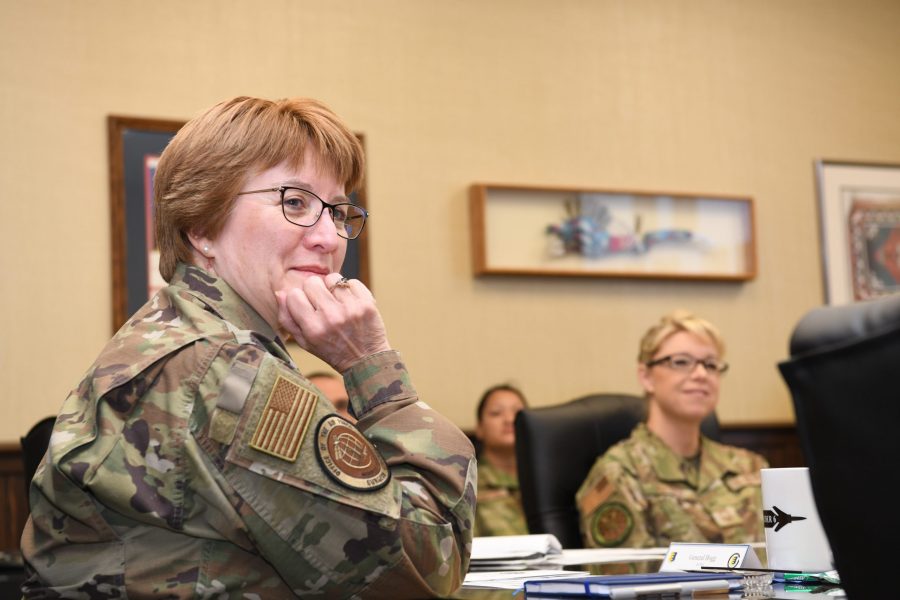The Air Force Surgeon General’s Office is expanding access to remote mental health support and offering resources to help members deal with the stresses of coping with social isolation and the wider virus response.
“I haven’t seen an uptick [in requests for help], but I am very, very aware that might be something that a lot of people are struggling with—even in individuals who weren’t struggling before,” USAF Surgeon General Lt. Gen. Dorothy Hogg said in an April 22 interview.
“If somebody needs some help, we’re doing it [via] telemental health or, if it needs to be face-to-face, then we do it with the proper precautions,” she said. Counselors are paying special attention to individuals deemed to be at greater risk before the outbreak.
The Air Force “did a lot” of phone-based telehealth prior to the COVID-19 crisis, Hogg said, and the need to do more now has made that more acceptable. “This is just going to … open up the aperture for that, and allow us to do more of that and allow us to do more video telehealth, as opposed to just telephone telehealth,” she said.
Expanding telehealth has “been working out very, very well,” she said. “We have adopted systems that we can use, and expect to continue to use those once we get back to whatever our new normal is going to be.”
Hogg’s office is also providing commanders “toolkits” for dealing with what Chief of Staff Gen. David Goldfein recently dubbed “the new abnormal.” The aim is to help leaders check in with their Airmen and ensure their well being despite social and physical distancing.
The Surgeon General’s office also recently issued a resiliency toolkit for Airmen, which Hogg called a “self help” resource for mitigating “any kinds of things they might be experiencing.” Other resources are available on the Air Force Integrated Resilience website.

